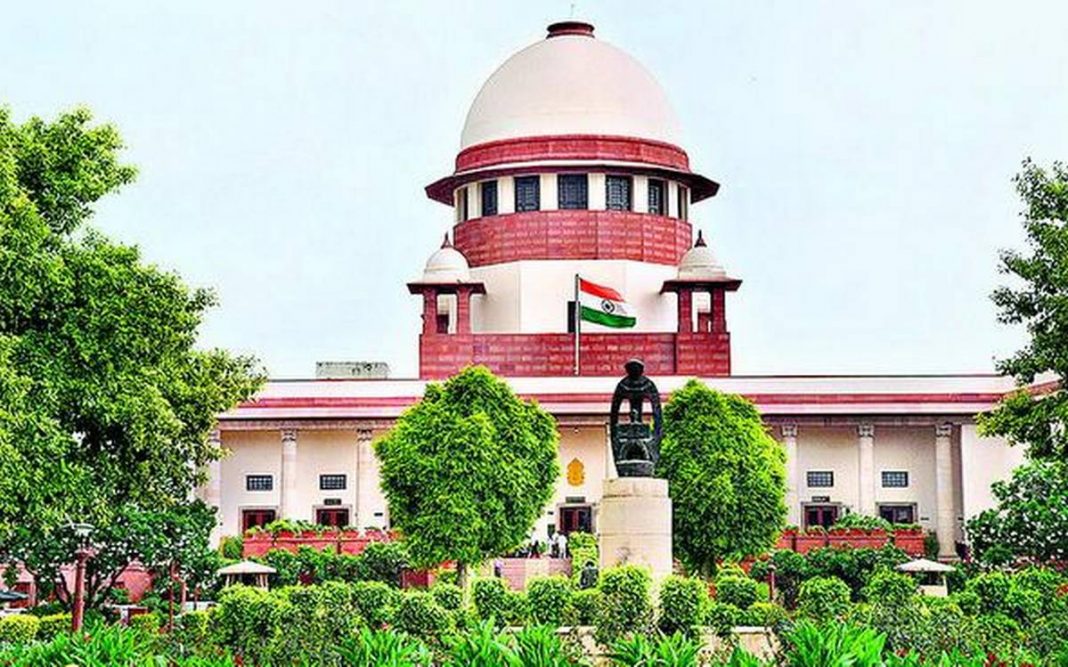Latest News
Judgement Analysis: Indibility Creative Pvt Ltd & Ors V Govt of West Bengal & Ors 2019 SCC OnLine SC 520

Bench: Justice Dr DY Chandrachud, Justice Hemant Gupta
Background: The Petitioners who stand to be producers and directors co-produced a Bengali film named 'Bhobishyoter Bhoot', translated to mean “future ghosts” and was given UA certification for public exhibition, issued by the Central Board of Film Certification on 19 November 2018. The film is a social and political satire about ghosts who wish to make themselves relevant in the future by rescuing the marginalized and the obsolete. However, 4 days prior to launch, the director received a letter from State Intelligence Unit asking him to arrange a prior screening of the film for senior officials of the intelligence unit of Kolkata police by 12 February 2019 on the basis of inputs regarding the possible hurting of public sentiments leading to law and order issues. Same was categorically denied by the Petitioner stating that it was outside the jurisdiction of the police. Following this on the day of release, screening was called off from the majority of the cinema halls in West Bengal. One of the managers of the cinema hall cited the message from SHO to pull down the film otherwise face damages and the same story was also covered in some newspapers. Following this, communications were sent to the local police and big cinema houses for confirmation of same but there was no response.
Arguments of the Petitioner: The Counsel pleaded that the letter addressed to the Director, dated 11 February, by the Joint Commissioner of Police was beyond the powers subject to the fact that the certificate was issued by CBFC. The Petitioners referred to one of the replies received by the Petitioners to their communication addressing their concern over the pulling of the film and stated that they were “directed by the authorities to discontinue screening”. The Counsel contended the same as a violation of their Right to Freedom of Speech and Expression by resorting to unconstitutional ways by exercising the arbitrary powers. The Counsel brought attention to the ‘harm principle’ which states that freedom can be curtailed only to prevent harm to others.
Arguments of the Respondents: The Counsel pleaded in reply of the directions that no action was taken in pursuit of the powers contained in Section 6 of the West Bengal Cinemas (Regulation) Act 1954 or Section 13 of the Cinematograph Act 1952 and the there was no order under any of these acts and the non-exhibition of the film was a self-sustained decision of the cinema hall owners. The Counsel categorically denied any sort of ban imposed on screening the film.
Judgement: In light of the facts the Court issued interim orders directing the Chief Secretary and the Principal Secretary of the Department of Home of West Bengal to ensure that no obstruction happens on the film being screened in the theatre's has the CBFC issued the certificate and held that it violated Article 19(1) of the Constitution. The bench after the interim order came with the full-length judgement following the arguments. The bench highlighted certain aspect of Freedom of Speech that the Freedom of Speech needs to be defended not crushed if certain individuals are not in favour of that expression.
The Court, however, added that satirical expression may be restricted under Article 19(2) by citing the S. Rangarajan v. P. Jagjivan Ram (1989) 2 SCC 574 where the Court revoked the U-certificate even when it was reviewed two times but also said that the same needs to be exercised in very restrictive sense and added that in cases of government criticism and certain other aspects cannot be restricted. The Court further cited Viacom 18 Media Pvt Ltd. Versus Union of India (2018) 1 SCC 671 where the Court held that the power when vested on some statutory board then if States issue any notification overlapping the powers of the board then it infringes the Fundamental Right as it would be wrong for the State to curtail the freedom instead providing the protection to the ones exhibiting the freedom, however, subject to any State or Central Law in force which gives the power to override the orders of the board.
The Court pointed out the fact that the police is not a self-appointed guardian of public morality and is subject to the uniformity of rule of law and not the allies of obstructor of speech and expression. The rule of law needs to be established in accordance with the law and in the present case as stipulated by the order under Section 6 of the West Bengal Cinemas (Regulation) Act 1954 which provides for a remedy against the certification of films. The Court pointed out that the excess or abuse of statutory power is amenable to constitutional guarantees and also expressed concern over the expressed intolerance by the organised groups.
Conclusion: The Court held that any attempt to unceremoniously pull off the release of the slated film would count as an insidious act which curtails grave threat to the Personal Liberty and Free Speech and Expression as it is neither backed by the authority of law nor in conformity of the Constitution of India. The bench ordered for the compensation to be paid to the Petitioners by the Respondents and decreed the omission on the part of the State in failing to affirm, fulfil and respect the Fundamental Freedoms of the Petitioners.
Document:



































































































